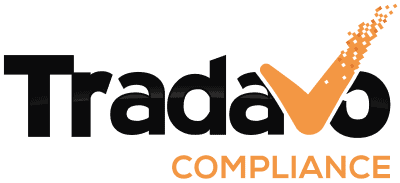The EU Machinery Directive
Our last two blog posts comprehensively dealt with the issue of the CE marking. Even though the CE symbol is usually associated with products in the field of electrical equipment or with toys, there are other groups of products that are subject to the statutory CE marking requirement.
Machinery is one of those product groups. You may think that the Directive does not concern you because you sell small products, not large industrial machinery. Unfortunately, the term “machinery” is somewhat misleading in this context, precisely because it makes most people think of industrial machinery. However, even small, inconspicuous products may be subject to the Machinery Directive, which means that they have to meet very strict requirements before they can be imported into the EU.
This blog post tells you everything you need to know about the Machinery Directive. In addition, we will give you a number of specific examples of products that are subject to the Machinery Directive.
What is regulated by the Machinery Directive?
The EU Machinery Directive (Directive 2006/42/EC) came into effect as of December 29, 2009. It regulates the circulation of machinery not only in the European Economic Area, but also in Switzerland, Liechtenstein, Norway, Iceland, and Turkey. The objective of the Directive is the creation of a harmonized European Single Market. This is meant to ensure that products that are marketed within the European community comply with the same basic safety standards.
Like all EU Directives, the Machinery Directive also had to be transposed into the national law of the respective states. In Germany, this was done by way of the Product Safety Act and the 9th Product Safety Regulation.
As a manufacturer, you should therefore take
- the Product Safety Act (ProdSG),
- the 9th Product Safety Regulation and
- the Machinery Directive 2006/42/EC with its 12 Annexes
into account in order to comply with all requirements in a legally safe manner.
The most important standard of the Machinery Directive that virtually any machinery has to comply with is the standard EN ISO 12100:2010.
The Machinery Directive is currently being amended. As a consequence of this amendment, the Directive becomes a Regulation that no longer needs to be transposed into national law. The new Machinery Regulation was adopted by the European Parliament on Apr 18, 2023, and is planned to be published at the beginning of July 2023 according to the Official Journal of the European Union.
Requirements pursuant to the Machinery Directive
In order to comply with the Machinery Directive, a machine has to fulfill certain requirements:
- The machine has to be mechanically and electrically safe.
- Functional safety (e.g. safe control circuits) has to be given.
- The machine has to be safe as of the date it is placed on the market.
- Safe operation has to be ensured.
- The safety and protection systems of the machine are designed in such a way that they cannot be easily circumvented.
- The machine was subjected to a conformity assessment procedure with risk assessment.
- If the laboratory tests produce a positive result: Declaration of Conformity and attachment of the CE marking.
- Preparation and enclosure of technical documentation and operating instructions that clearly point out the residual risks that are identified as such to users and end users.

Legal consequences of non-compliance with the provisions
Failure to comply with the Machinery Directive can result in very high costs. The Machinery Directive itself does not contain any provisions on fines or penalties, but the German Product Safety Act certainly does. If provisions are not complied with, the case will be brought to a German court that can impose fines in an amount of up to EUR 100,000 for manufacturers, importers, and dealers.
Severe violations can easily become public knowledge and cause lasting damage to the manufacturer’s reputation. In addition, they may give rise to claims for damages.
Definition machine
According to the definition in the Directive, a machine is an assembly of linked parts or components, at least one of which moves, as well as actuation elements, control and power circuits. Several interlinked machines or interchangeable equipment and safety components are also considered a machine.
In the case of partly completed machinery, manufacturers are obligated to enclose assembly instructions and a declaration of incorporation with the product.
Machines that do not have a drive system are subject to the Machinery Directive as well. Assemblies that are ready to be installed and able to function only if mounted on a means of transport or installed in a building or a structure are machines as well—the term “machine” applies even before such installation.
Depending on the type of machine, different conformity assessment procedures apply:
- Internal check
- EC type-examination procedure
- Full quality assurance procedure
Scope of the Machinery Directive: Which products are affected?
We already mentioned it in the introduction: The scope of the Machinery Directive includes much more than what we commonly call a “machine”. The Machinery Directive applies for machines and partly completed machinery that are marketed in the EU. Therefore, its provisions affect not only distributors, but manufacturers, importers and sellers as well.
Each of the parties involved has to comply with the provisions of the Directive as well as product safety law.
Specifically, the Directive applies for the following products, among others:
- machines such as treadmills, hairdryers (for commercial use), massage chairs, car jacks
- interchangeable equipment
- safety components
- lifting accessories
- chains, ropes and webbing
- removable mechanical transmission devices
- partly completed machinery (subassemblies)

CE marking and Declaration of Conformity
With the CE marking in the context of the Machinery Directive 2006/42/EC, the manufacturer proves to the competent authority that their machine complies with the relevant EC Directives.
Please note: The CE marking is not a quality seal!
Almost every product that falls under the scope of the Machinery Directive has to be equipped with the CE marking. According to the Machinery Directive 2006/42/EC, safety components are also equipped with a CE marking.
Partly completed machinery is not equipped with a CE marking as this would not be admissible pursuant to Article 16 (3) of the Machinery Directive.
How can we support you?
You are planning to market a product, or you are already selling a product that may be subject to the Machinery Directive? If you want to play it safe, and not leave the compliance of your products to chance, you should book an appointment for an initial consultation with our compliance experts right away.
You need assistance?
It is best to book an appointment directly for a free initial consultation.
Who wrote this article?
As an author, Christina fills the blog section of our website with exciting and informative articles, so that our readers can always take care of product compliance in their company in the most well-informed way.




